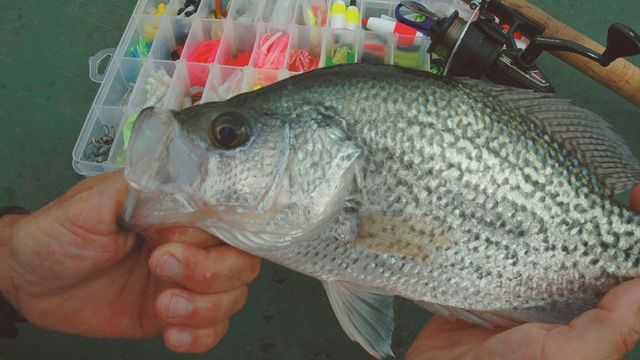
Why You Should Follow The Barometer To Catch Crappie, According To Science
The old adage that fish bite best before a storm and the rhyme about wind direction affecting a fish’s feeding habits gain some credence when applied to barometric pressure readings. Since wind and storms usually indicate changes in barometric pressure, these conditions also signal a change in crappie behavior.Scientists have detected many organisms that respond in some fashion to changes in atmospheric pressure. The human body corresponds to changes in atmospheric pressure especially in the old or infirmed. Scientists have detected changes in pulse and respiration rates, blood pressure, blood compositions and various physical processes systematically reflecting the transition of low pressure and high pressure air masses that regularly precede and follow a storm. So when humidity is low and the barometer is rising, the average man tends to go about his chores cheerfully and more efficiently. But the same guy on a muggy day with a falling barometer muddles through his work and is gloomy and sullen.A change in barometric pressure seems to trigger similar changes in a crappie’s behavior. Studies by the late Dr. Loren Hill, a noted professor of zoology, showed that when the barometer was falling in the springtime, crappie moved off the shoreline to deeper habitat. After the barometric pressure fell, the fish remained in a dormant state for six to eight hours, and then made their trek back to the shallows once the barometer started to rise. A steady barometer had little effect on crappie, so during stable weather the fish remained in the shallows to feed and spawn.The study also showed extremely high pressure negatively impacted the behavior of crappie. During extremely high-pressure conditions in the springtime, crappie abandoned their spawning duties in the shallows and suspended in deep water.Hill concluded the fish bite best before a storm because the barometric pressure changes from a steady to a falling condition which triggers aggression in crappie. The pressure change causes crappie to move around aggressively and seek other locations.Even after the barometric pressure drops to a low reading, some crappies still bite during the dormant period. Hill theorized that pressure changes affect adult crappie more than younger fish, so smaller crappie seem to bite better when the barometer has bottomed out. I have experienced this numerous times when I have caught lots of small crappie but struggled to catch a bigger fish after a cold front.
Updated May 14th, 2020 at 7:23 AM CT
